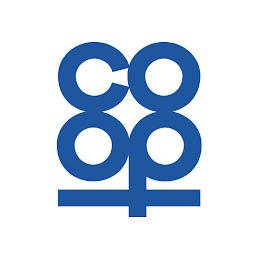I have made it a point never to criticize Weaver Street Market Co-operative management, policy, strategy or tactics, without offering an alternative.
In respect of the manner in which WSM management told us at our Annual Store Meeting they were going to plan and implement 2022 Vision, I'm doing it the other way round.
I offered the alternative already. Now I set out my criticism, in the letter I wrote to the chain of management, beginning with my Department Manager and ending with the General Manager:
"If you ever wanted to know why I engage in what I know distresses some in management, namely taking the discussion in our co-operative to a wider audience, even to the extent of disseminating what some of you consider internal documents, last night was a prime example.
The whole of the Annual Store Meeting came down to this: you will all be expected to raise it a notch, because we in management have a vision.
It doesn’t matter if it is a noble vision. It doesn’t matter if it is well considered. Passionate. Exciting. Far reaching. It is a vision that has been put together by a few, with little opportunity for those upon whom it depends for success having any meaningful input.
Does this matter? Yes. Logic dictates that your workforce will be more invested in any vision if it is a vision they helped to design. But more than this, you simply have no right to be abrogating to yourselves the right to design the vision alone.
It’s no good saying, but we employees can have input, when you stand before us and declare what it is you will be expecting from us to implement the vision. Enough of the major decision-making has been undertaken, so as to make our input superfluous.
It’s not so much the horse has bolted. It’s gone. The stable door’s been shut. The stable repainted. And the farm sold. And you’re asking me what name I’d like to give the horse.
Again, why does this matter? Because some of the primary principles of co-operation are equality, democracy and openness. There was little about last evening that suggested an equality of democracy in the fashioning and implementation of this vision.
I hope you prove me wrong. I hope that last evening proves to be only the beginning of the conversation about the 10-year vision. That there will be wider discussion in the co-op – discussion that is meaningful, not mere window-dressing. I hope there will be some attempt to devolve implementation of the vision down to the units and the departments. But the language of last evening makes it more hope than expectation.
To all intents and purposes what I saw last evening was not bare bones. It was driving force. Armed and ready to go. Leading food business in the Triangle. Three new stores. Increase sales to fund. All the result of many months of planning. And all without us.
I would have preferred that the planning, the discussion had commenced in the working groups now being touted. I take my view of co-operation in Weaver Street from the definition and principles defined by the ICA, from WSM’s Mission Statement, and from the Worker-Owner Mission Statement. I’m not sure where you take yours.
As such, I believe that strategy should commence with the body of stakeholders, not management. The latter can provide some talking points. But last night and the past few months have been about a lot more than mere subject heads.
If those working groups had been convened properly, I would have spoken out against further expansion. I would have asked that we pay off our existing debt, before outlining new capital expenditure.
I would have insisted that any new expansion place no burden on employees without their concurrence. And you’re placing burden without concurrence when you tell employees to raise it a notch, and you don’t give them an opportunity (in a co-op, where the principles of co-operation say we are equal) to say, no thanks.
I would have suggested that we have quite enough still to do absorbing the last expansion. Much remaining to get right. I would have wondered if ‘local’ does not actually mean providing for the needs of our immediate community (Southern Village). And whether it would not be better to find out what they, our immediate stakeholders want, not the rest of the Triangle.
Anyway. That would have been some of my specific input. The more important point is that it wasn’t sought when the major planning was under way. And there is little suggestion that, even if working groups are convened now, that input, even if it were to find favor with a body of stakeholders, would have any meaningful impact upon the direction management seem already to have chosen.
And that is why I widen the discussion. Because you won’t. And the principles of co-operation, the WSM Mission Statement and the Worker-Owner Mission Statement demand that you should.
On a couple of side notes. As a former management consultant, I was a little unhappy with some of the figures you presented in the opening section, comparing the performance of WSM with the alleged activities of other grocery stores. It is normal to give sources.
There has been a move in recent years, during these presentations, to make the dubious inference that certain practices are ‘standard’ or ‘normal,’ when no such justification is given for the assertion.
I would have questioned the statements at the time, but there was no Q and A section for that, and I did not want to swamp the General Discussion section. Again, it really is asking a bit much of us to try to cram last year and the coming year all into, what, 40 minutes of General Discussion, don’t you think?
I would be grateful if one of you could please go through each of the slides at the beginning, and provide me with the source for the comparative figures – sales increases (Micki said something about these being ‘normal’ for grocery stores; um, says who; and what is normal for a co-op is what that co-op decides for itself, with respect?), pay increases, et al.
There has been some discussion about the alleged separation of ‘governance’ and ‘operations.’ I think it is an illusion that serves those who wish to prevent wider discussion of strategy.
For me, the separation is between strategy and tactics. Stakeholders decide strategy, and the paid staff then implement the tactics. That is what is ‘normal’ in other co-operatives.
But it isn’t really separated. Ruffin might say that 2022 Vision is merely a tactical implementation of the strategy of the WSM Mission Statement. I would say that tactics is choosing the wallpaper for the new stores. Not deciding how many to build.
When you ask folks on the cash register to sell co-operative ownership, they are promoting governance. When management makes decisions that affect what owners may expect, that is operations straying into governance. When the Board sets the budget, it is defining operations.
When governance drafts a Mission Statement that says that the work experience should be fulfilling, and a manager says that the Mission Statement is not co-op policy, then that is a conflict between governance and operations.
When operations craft changes to Employee Policy, which, on the face of them, interfere with a work-owner’s duty to promote co-operative principles in the community, then that is another conflict between governance and operations.
There is another way of looking at the dichotomy, specifically as it relates to 2022 Vision. If one says that 2022 Vision is governance, then operations have no place promulgating its design. Instead, as a worker owner, there should be separate discussion available to me.If, however, one is advancing the argument that 2022 Vision is within the purview of operations, then I am a part of operations too, and I should have equal impact upon its design.Otherwise, we have created a tri-partite model of co-operation: governance, management and staff. A model that is not recognized by John Carver, or by any other aspect of co-operation that I have seen or read.So. The distinction between governance and operations is not as clear as some would like. What the distinction does require, and it is pretty much all that it demands, is that Directors and worker-owners have no right, in that capacity, to tell a member of staff what to do. And operations may not bypass their accountability to stakeholders and the Board of Directors.Finally, I will be returning my 360 Evaluation this year uncompleted. Frankly, after last evening, I do not feel it makes any difference. You will make the decisions you make in any event.And to be honest, whether you think there should be equality, democracy, transparency and openness in a co-op, indeed and perhaps, because I think that you do not, when co-operative principles demand that there should be, I regard this letter and any responses as open material.If you believe in what you say, then you should have enough conviction to stand by it publicly. I do.All the best,Geoff"



























